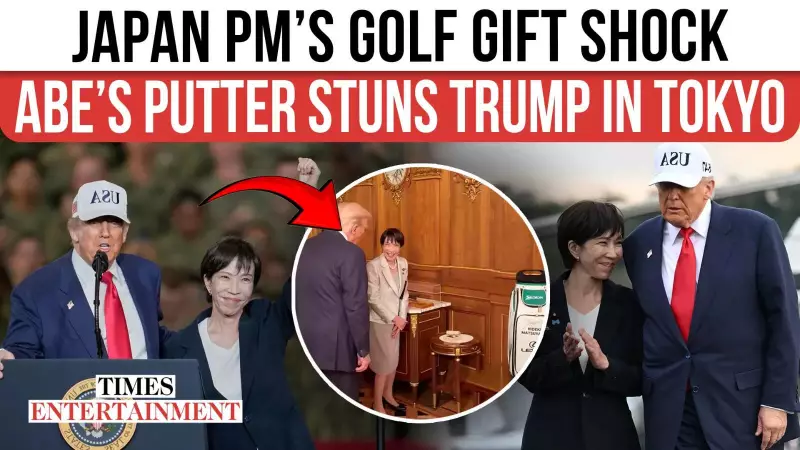
In a move that beautifully blended sports, diplomacy, and emotional tribute, Japan's Prime Minister Sanae Takaichi created an unforgettable moment during her meeting with former US President Donald Trump. The Japanese leader presented Trump with an extraordinarily personal gift that carried deep symbolic significance.
A Surprise That Echoed Across Diplomatic Circles
The centerpiece of this remarkable exchange was none other than the personal golf putter belonging to the late Prime Minister Shinzo Abe, accompanied by a specially signed golf bag. This wasn't just any diplomatic gift—it was a powerful nod to the special relationship Trump shared with Abe, who was known to be an avid golfer and had frequently hit the links with the former president during their time in office together.
The Emotional Weight Behind the Gesture
Prime Minister Takaichi's presentation went beyond typical diplomatic protocol. By choosing Abe's personal golf equipment, she:
- Honored the memory of Japan's longest-serving prime minister
- Acknowledged the strong personal bond between Trump and Abe
- Used the universal language of sports to bridge political divides
- Created a moment of genuine surprise and appreciation
The timing and nature of this gift demonstrated Japan's sophisticated approach to international relations, blending cultural understanding with political messaging.
'Japan Is Back' - More Than Just Words
As she made the presentation, PM Takaichi confidently declared "Japan is back"—a statement that resonated far beyond the meeting room. This proclamation signals Japan's renewed assertiveness on the global stage and its commitment to maintaining strong alliances, particularly with the United States.
The choice of a golf-related gift was particularly apt, given Trump's well-known passion for the sport. It showed meticulous planning and understanding of the recipient's interests, turning what could have been a standard diplomatic meeting into a memorable encounter that celebrated past friendships while looking toward future cooperation.
This incident highlights how modern diplomacy often unfolds through personal connections and symbolic gestures, proving that sometimes the most powerful political statements come not through formal agreements, but through thoughtful, personal gifts that speak volumes about international relationships and mutual respect.





